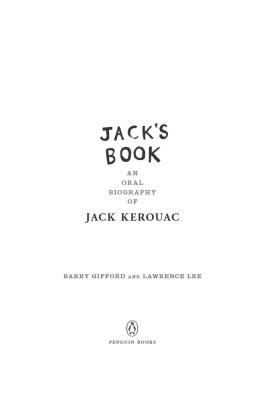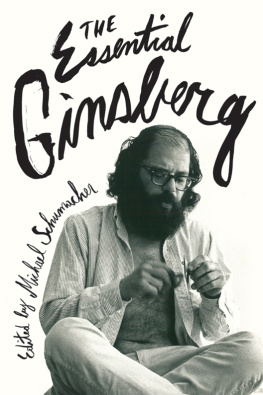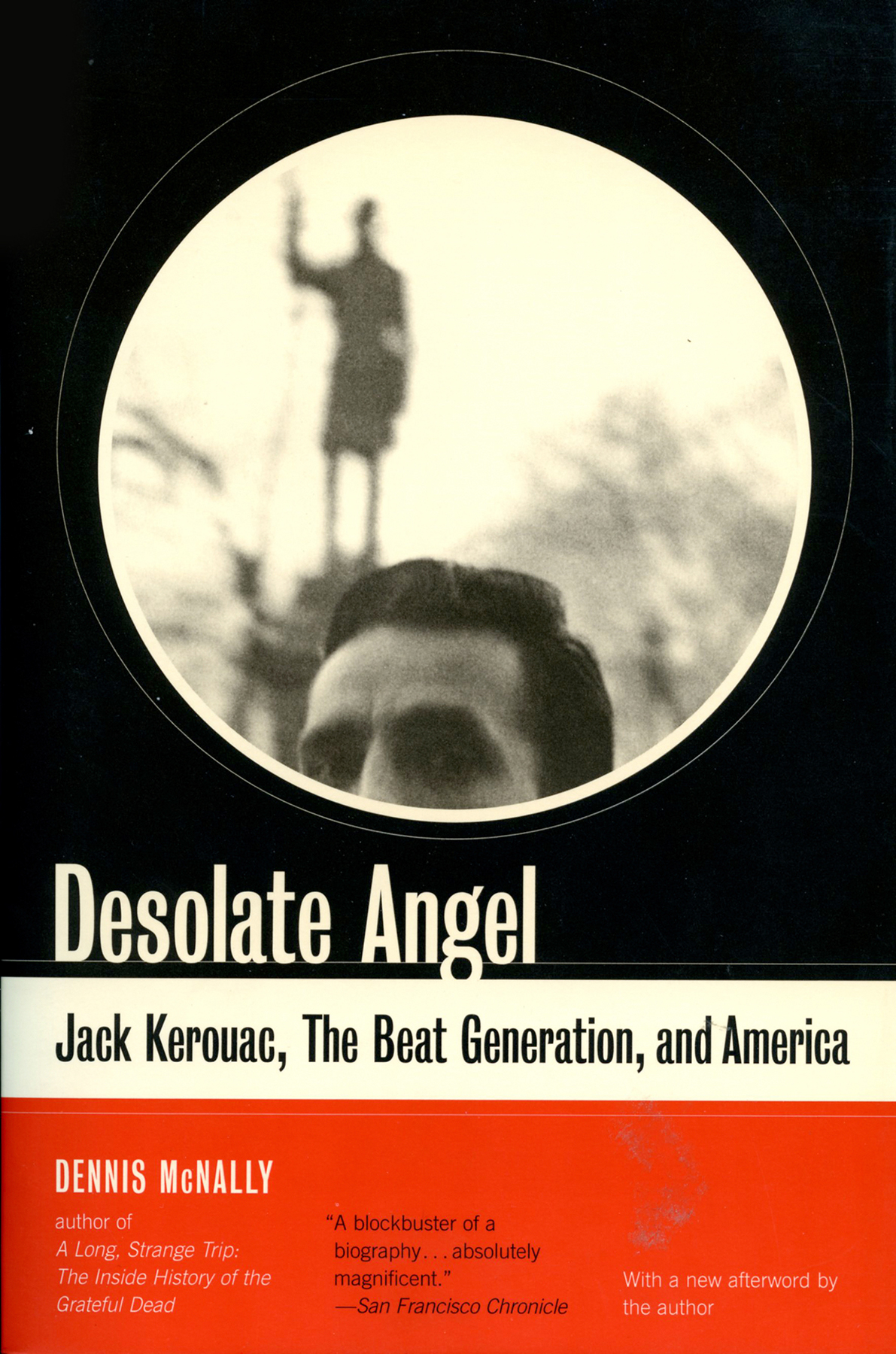Copyright 1979, 2003 by Dennis McNally
Cover design by Alex Camlin
Cover photography by Allen Ginsberg/CORBIS
Cover copyright 2020 by Hachette Book Group, Inc.
Hachette Book Group supports the right to free expression and the value of copyright. The purpose of copyright is to encourage writers and artists to produce the creative works that enrich our culture.
The scanning, uploading, and distribution of this book without permission is a theft of the authors intellectual property. If you would like permission to use material from the book (other than for review purposes), please contact permissions@hbgusa.com. Thank you for your support of the authors rights.
Hachette Books
Hachette Book Group
1290 Avenue of the Americas
New York, NY 10104
hachettebookgroup.com
twitter.com/hachettebooks
Originally published by Random House: 1979
First Hachette Books Ebook Edition: February 2020
Hachette Books is a division of Hachette Book Group, Inc.
The Hachette Books name and logo are trademarks of Hachette Book Group, Inc.
The publisher is not responsible for websites (or their content) that are not owned by the publisher.
Library of Congress Cataloging-in-Publication Data has been applied for.
ISBNs: 9780306812224 (trade paperback); 9780306875205 (ebook)
E3-20200222-JV-NF-ORI
Grateful acknowledgment is made to the following for permission to reprint previously published material:
City Lights Books: Excerpt from Kaddish and Other Poems by Allen Ginsberg. Copyright 1961 by Allen Ginsberg. Excerpt from Howl and Other Poems by Allen Ginsberg. Copyright 1956, 1959 by Allen Ginsberg. Excerpt from The Yage Letters by William S. Burroughs and Allen Ginsberg. Copyright 1963 by William S. Burroughs and Allen Ginsberg. Excerpt from Mishaps, Perhaps by Carl Solomon. Copyright 1966 by Carl Solomon. Excerpt from Scattered Poems by Jack Kerouac. Copyright 1970, 1971 by The Estate of Jack Kerouac. Reprinted by permission of City Lights Books.
Coward, McCann & Geoghegan, Inc.: Excerpt from Desolation Angels by Jack Kerouac. Copyright 1960, 1965 by Jack Kerouac. Excerpt from Vanity of Dulouz by Jack Kerouac. Copyright 1968 by Jack Kerouac.
E. P. Dutton & Co., Inc.: Excerpt from Nothing More to Declare by John C. Holmes. Copyright 1967 by John C. Holmes. Reprinted by permission of the publishers, E. P. Dutton.
Dwarf Music: Excerpt from Absolutely Sweet Marie by Bob Dylan. Copyright 1966 by Dwarf Music. Used by permission. All rights reserved.
Grove Press, Inc.: Excerpts from Mexico City Blues and The Subterraneans by Jack Kerouac.
Harcourt Brace Jovanovich, Inc.: Excerpts from The Town and the City by Jack Kerouac are reprinted by permission of Harcourt Brace Jovanovich, Inc. Copyright 1950 by Jack Kerouac. Copyright renewed 1978 by Stella S. Kerouac.
Sterling Lord Agency: Excerpts from Desolation Angels by Jack Kerouac. Copyright 1962 by Jack Kerouac. Reprinted by permission of the Sterling Lord Agency. Excerpt from The Origins of the Beat Generation by Jack Kerouac, copyright 1959 by Jack Kerouac, which appeared in the June 1959 edition of Playboy. Reprinted with the permission of the Sterling Lord Agency.
The Lowell Sun: Excerpts from the Lowell Sun granted by permission.
McGraw-Hill Book Company: Excerpt from Visions of Cody by Jack Kerouac. Copyright 1972 by Jack Kerouac. Used with permission of McGraw-Hill Book Company.
New Directions Publishing Corp.: Excerpt from The Back Country by Gary Snyder. Copyright 1968 by Gary Snyder. Excerpt from Regarding Wave by Gary Snyder. Copyright 1970 by Gary Snyder. Excerpt from Elegaic Feelings by Gregory Corso. Copyright 1970 by Gregory Corso. Excerpt from letter of February 27, 1952, from William Carlos Williams to Allen Ginsberg, published by permission New Directions, Agents for the Estate of Florence H. Williams. Reprinted by permission of New Directions Publishing Corporation.
New York Post: Excerpts from Mike Wallace Asks Jack Kerouac What Is the Beat Generation and Alfred G. Aronowitz, Saint Jack. Reprinted by permission of the New York Post. Copyright 1958, 1959 by New York Post Corporation.
Charles Peter Olson: Excerpt from I Maximus of Gloucester, To You by Charles Olson, from The New American Poetry.
Totem Press in association with Corinth Books: Excerpt from The Scripture of the Golden Eternity. Copyright 1960 by Jack Kerouac.
The Viking Press, Inc.: Excerpt from On the Road by Jack Kerouac. Copyright 1955, 1957 by Jack Kerouac. Reprinted by permission of The Viking Press.
The Village Voice: Excerpt from Jerry Talmer, Back to the Village-But Still On the Road, reprinted by permission of the Village Voice. Copyright 1957
The Village Voice, Inc.
Washington Post: Excerpt from Jack Kerouac, After Me, the Deluge. Copyright The Washington Post.
The excerpt from The Know-Nothing Bohemians is Copyright 1958 by the Partisan Review.
Acknowledgment is also made to the following individuals and libraries for permission to print previously unpublished materials:
Alan Ansen: Excerpts from passages by Alan Ansen granted by permission of the copyright holder, Alan Ansen.
Alfred G. Aronowitz: Material from the unpublished manuscript, The Beat Book, reprinted by permission of AI Aronowitz.
Bancroft Library, University of California at Berkeley: Excerpts from the letters of Donald Allen and Gregory Corso are quoted by permission of the Bancroft Library.
Butler Library, Columbia University, New York: Excerpts from the letters of William S. Burroughs and Allen Ginsberg are quoted with permission of the authors and Butler Library.
Carolyn Cassady: Material from the unpublished manuscript, The Third World, is quoted by permission of the author, Carolyn Cassady.
John C. Holmes: Excerpts from the letters of John C. Holmes are quoted by permission of the author.
Humanities Research Center: University of Texas at Austin.
Michael McClure: A previously unpublished poem is reprinted by permission of the author.
When a society becomes afraid of its poets, it is afraid of itself.
Lenore Kandel
You road I enter upon and look around, I believe you are not all that is here,
I believe that much unseen is also here
From this hour I ordain myself loosd of limits and imaginary lines,
Going where I list, my own master total and absolute
To know the universe itself as a road, as many roads, as roads for traveling souls.
Walt Whitman
History is hard to know, because of all the hired bullshit, but even without being sure of history it seems entirely reasonable to think that every now and then the energy of a whole generation comes to a head in a long fine flash, for reasons that nobody really understands at the timeand which never explain, in retrospect, what actually happened.
Hunter Thompson
Though Thompsons comments were meant for another era, they seem to apply as well to the activities of Jack Kerouac, Allen Ginsberg, Neal Cassady, John C. Holmes, and William S. Burroughsthe members of the so-called Beat Generation. This small group of writers and poets created a body of profoundly significant art that deserves study if only for aesthetic reasons. But even more to the point of this work, their art and their lives are dramatic reflections of the historical changes of the United States in the period following World War II, and it is to that end that I undertook this labor, working more as an historian than as a literary critic.





